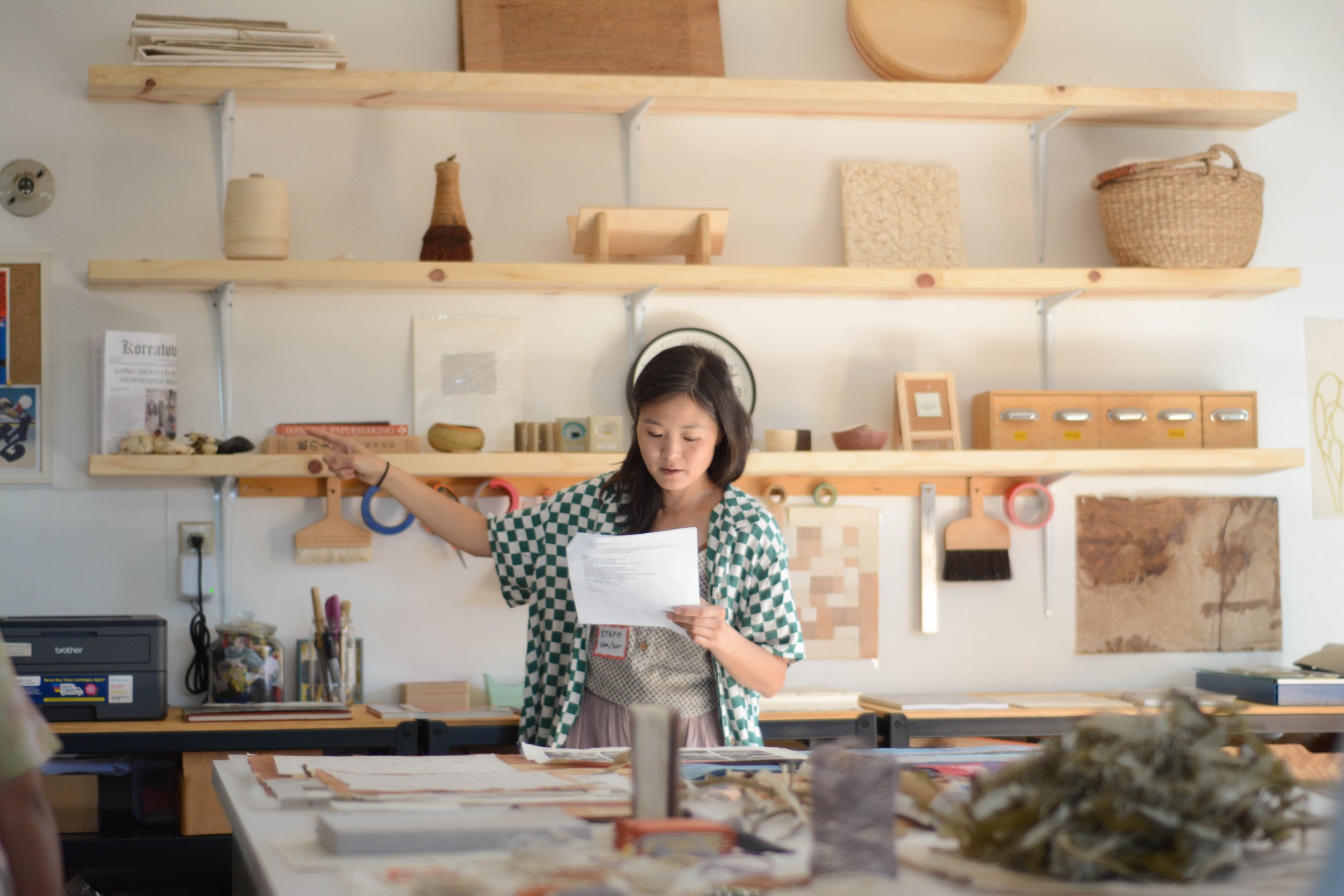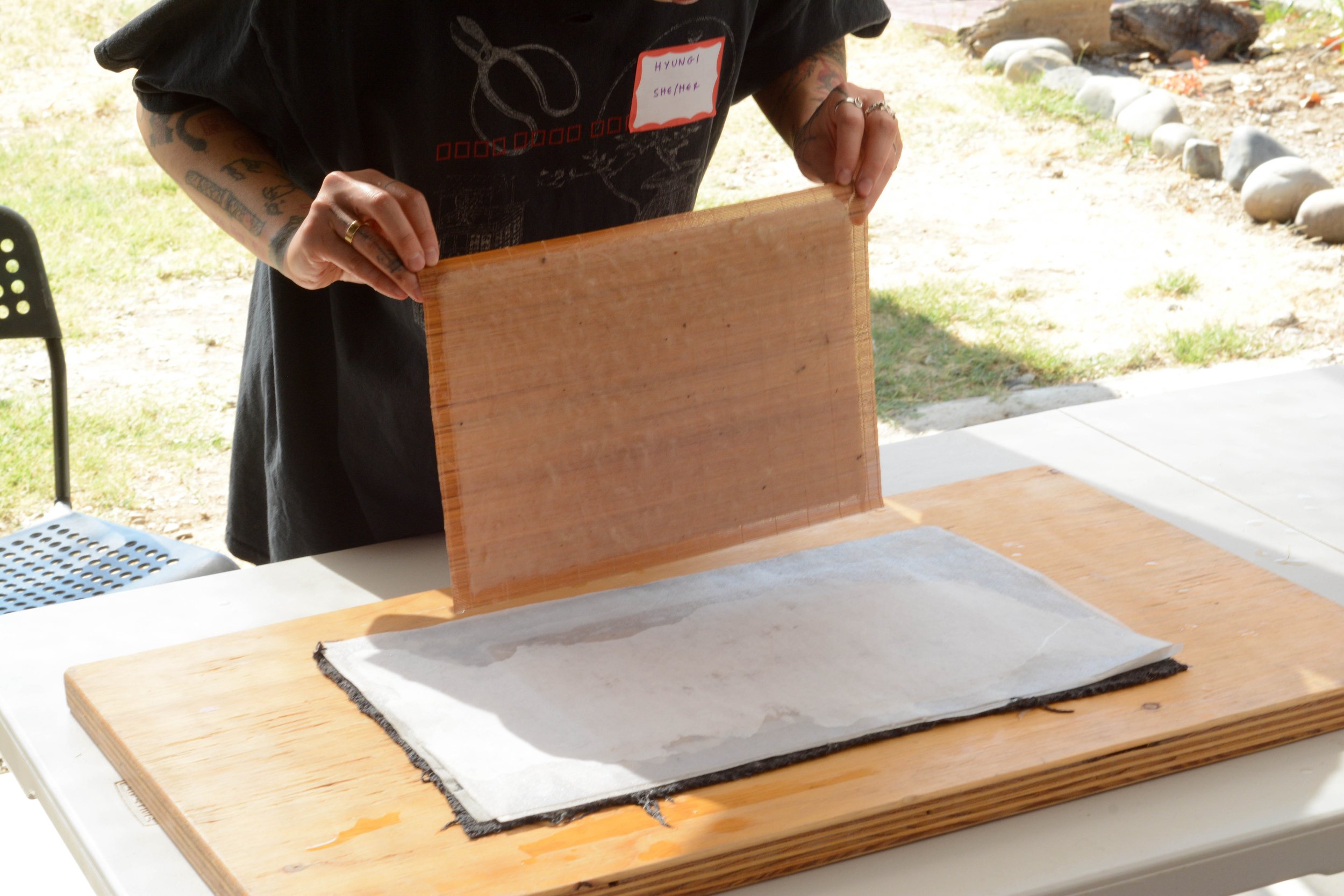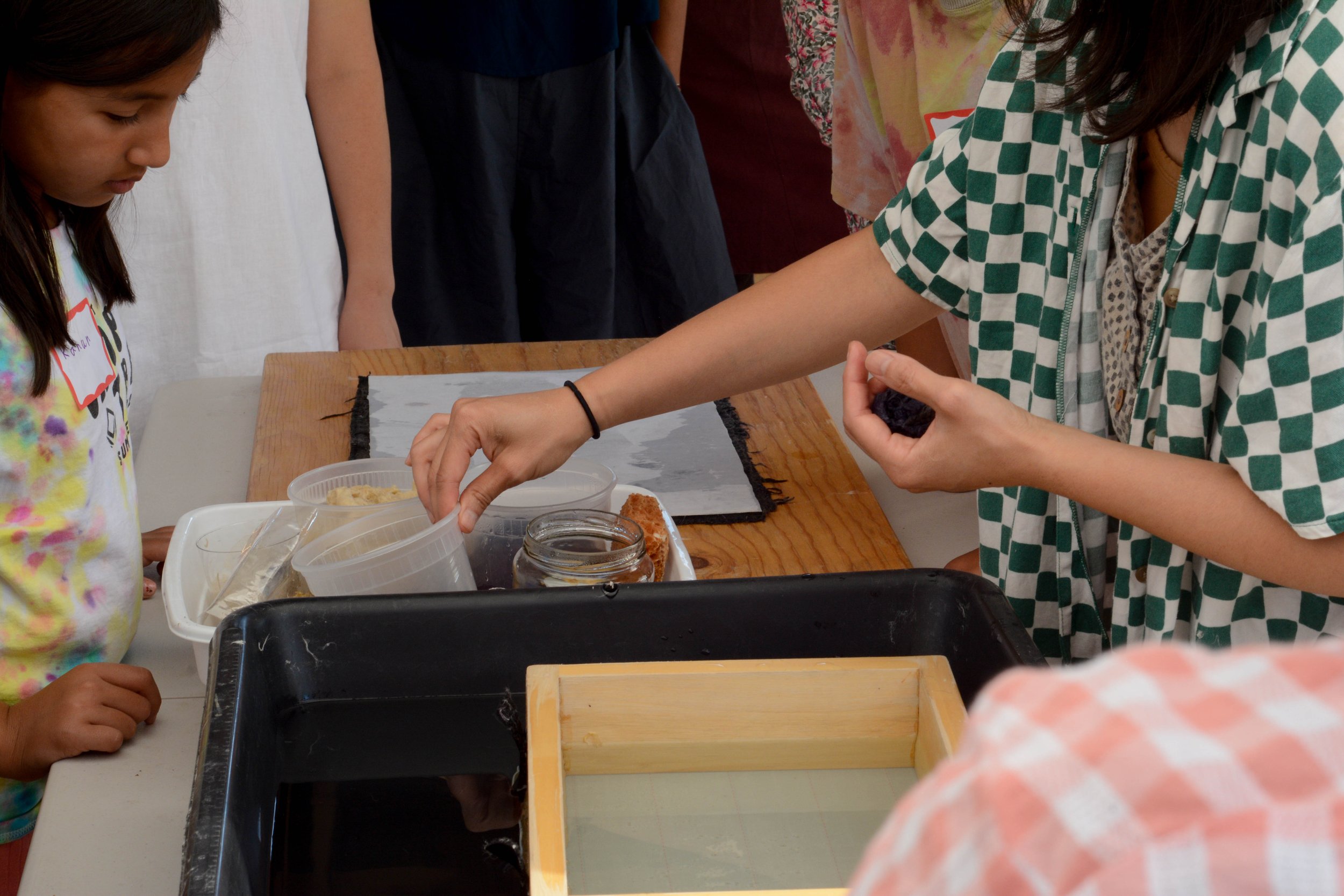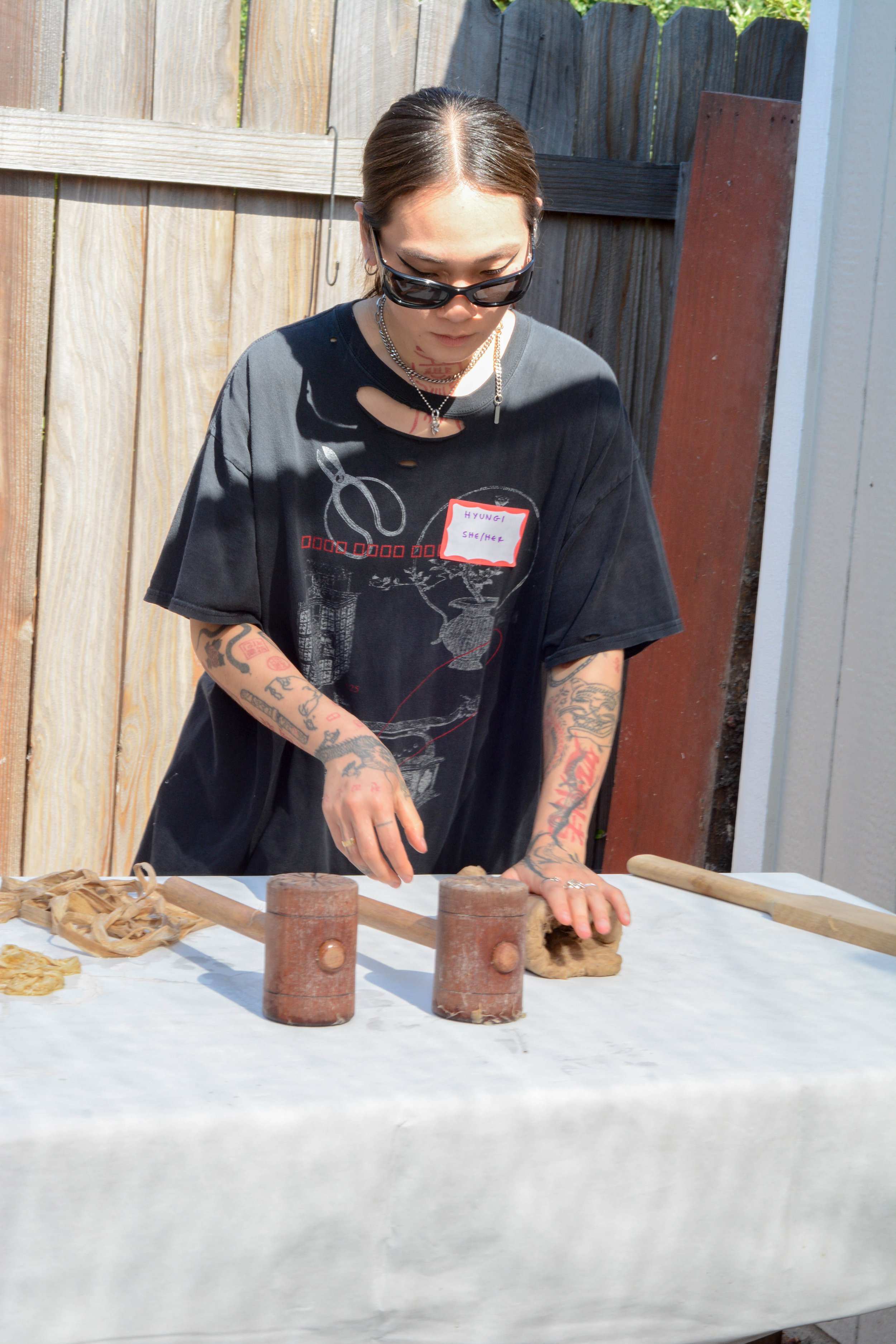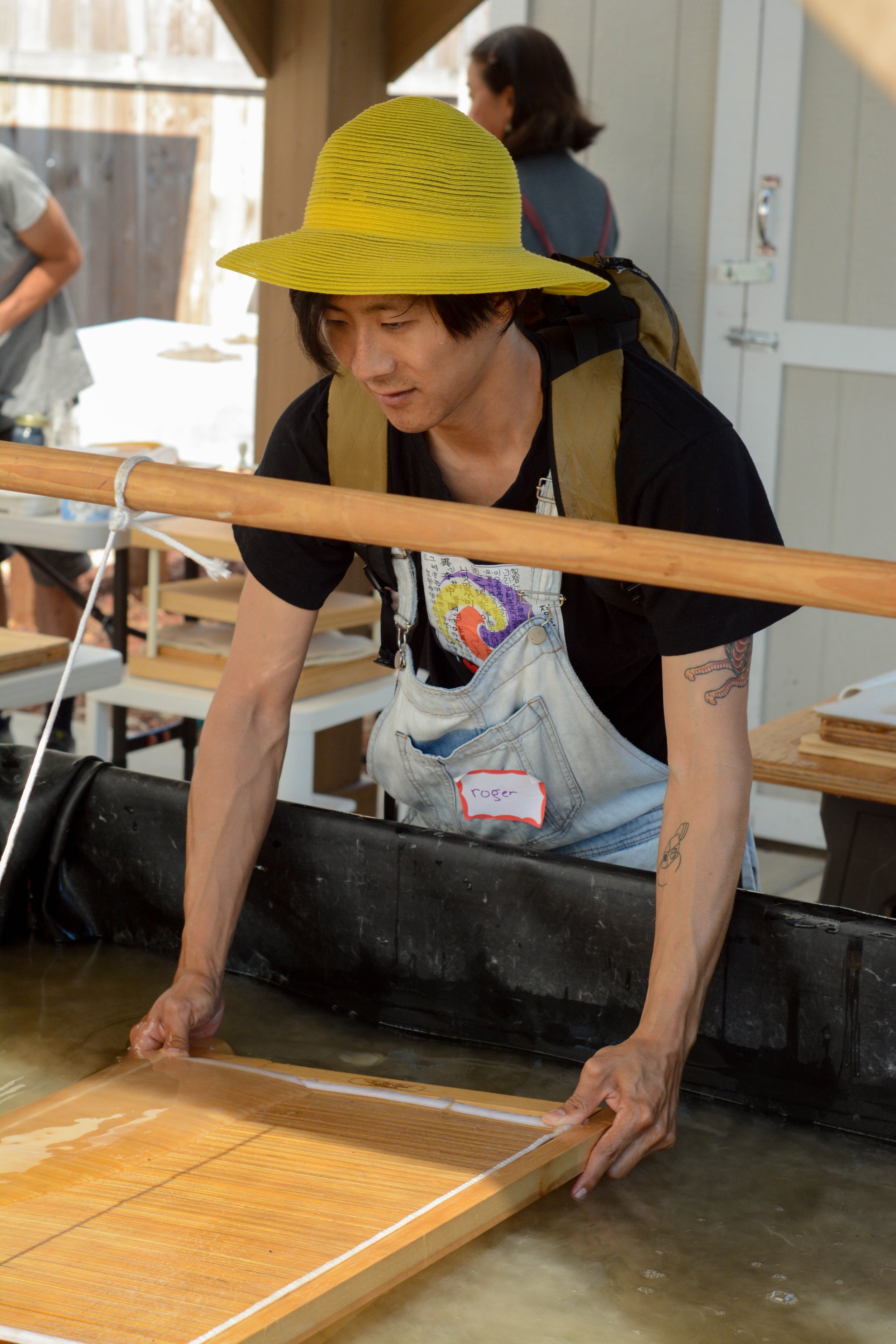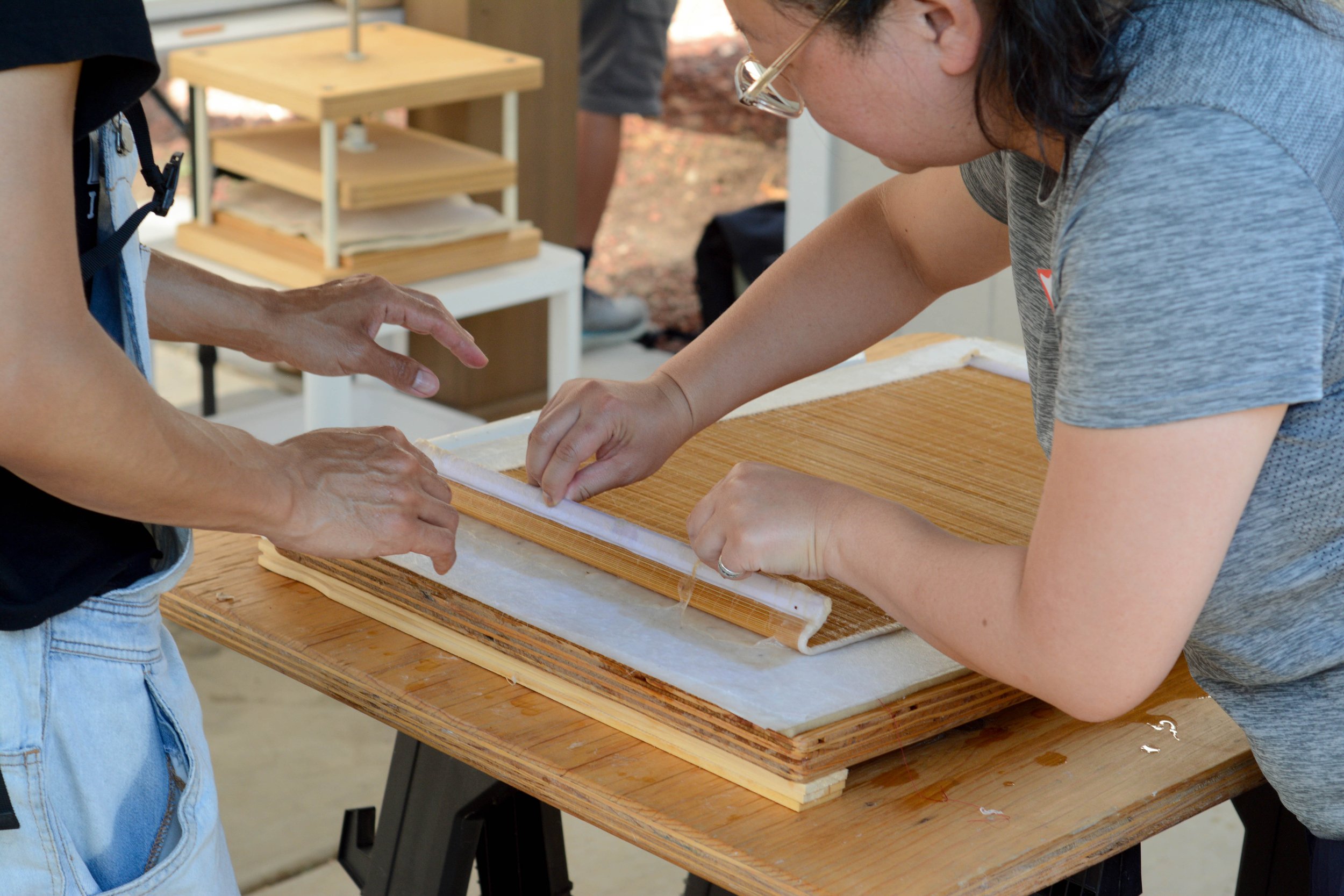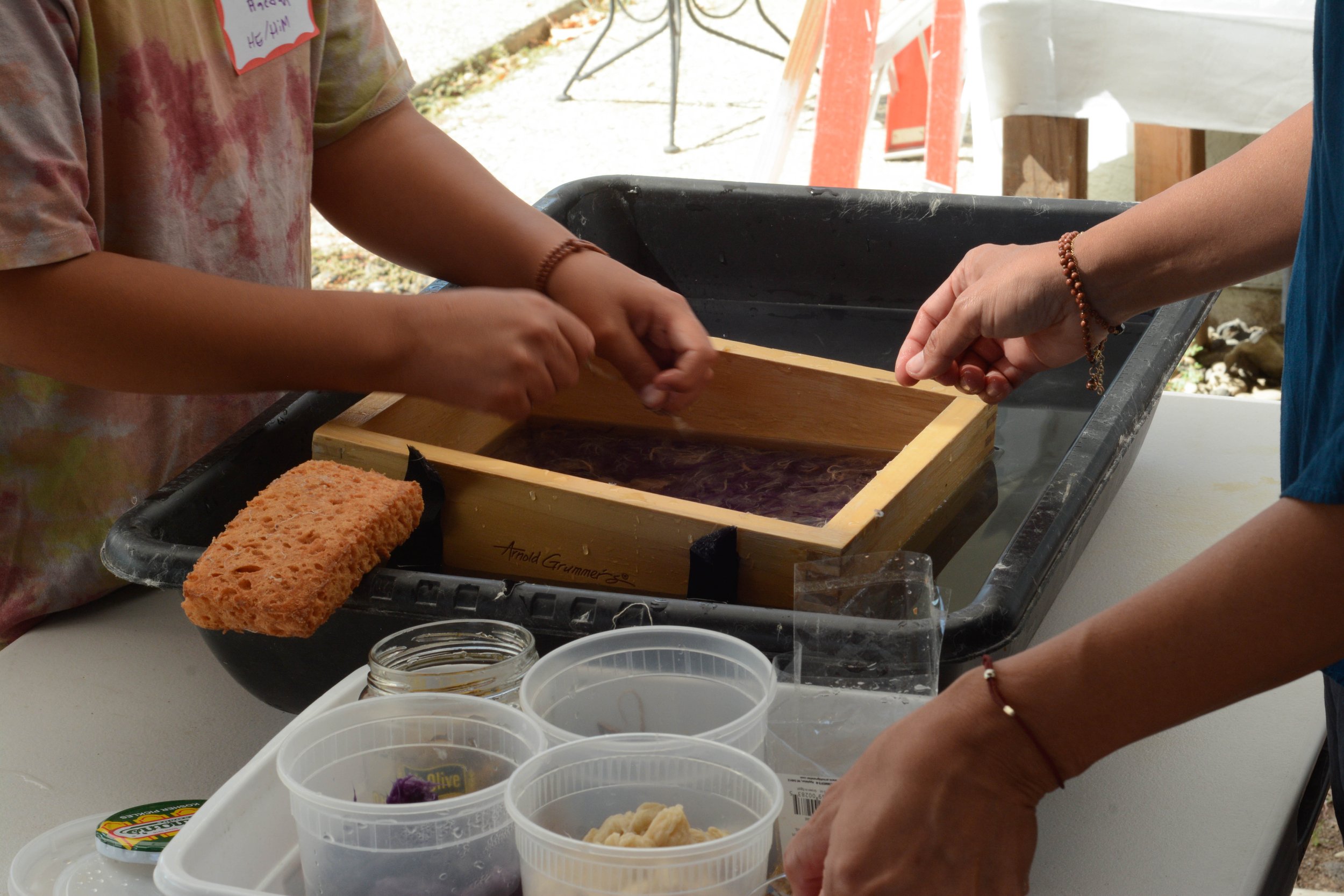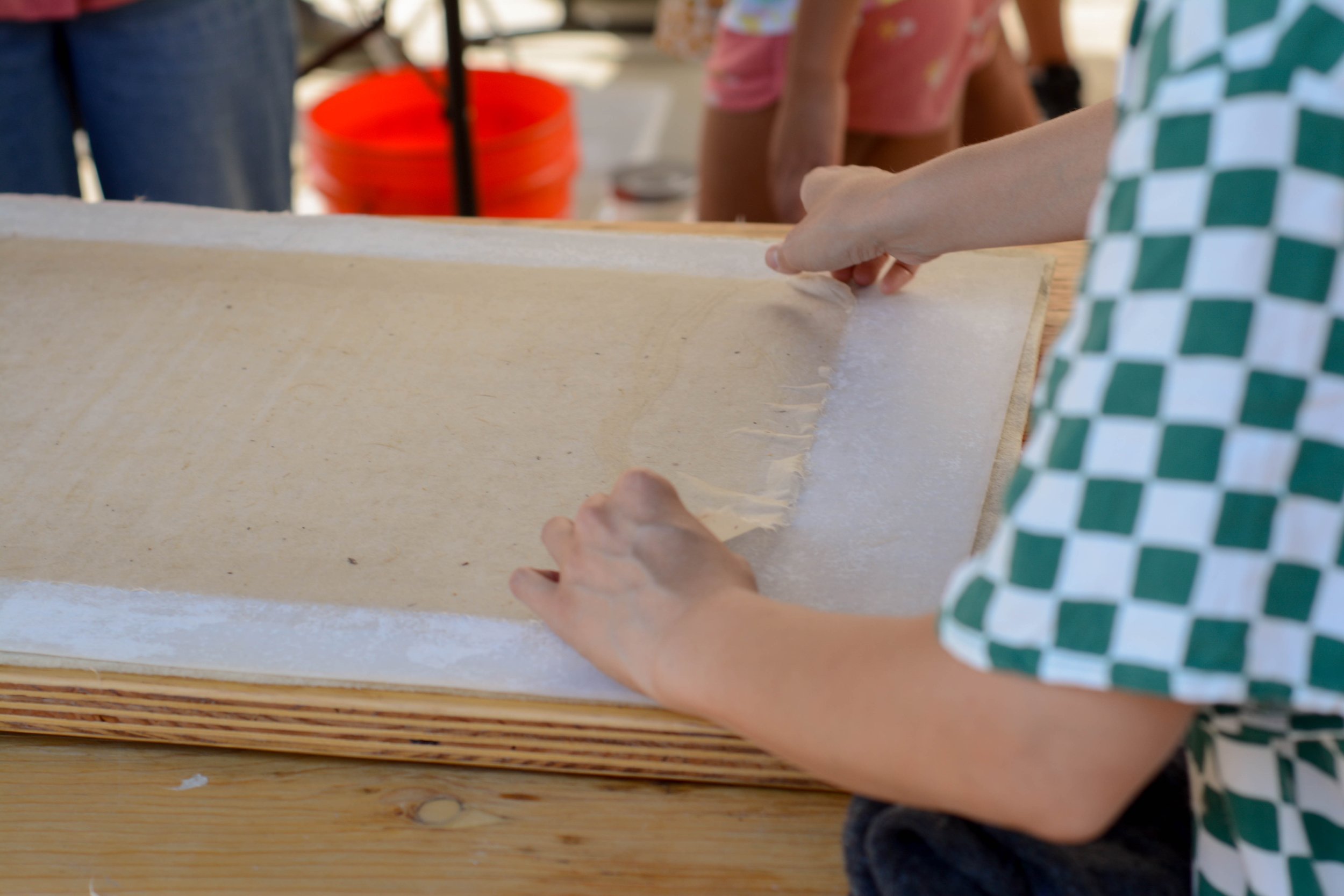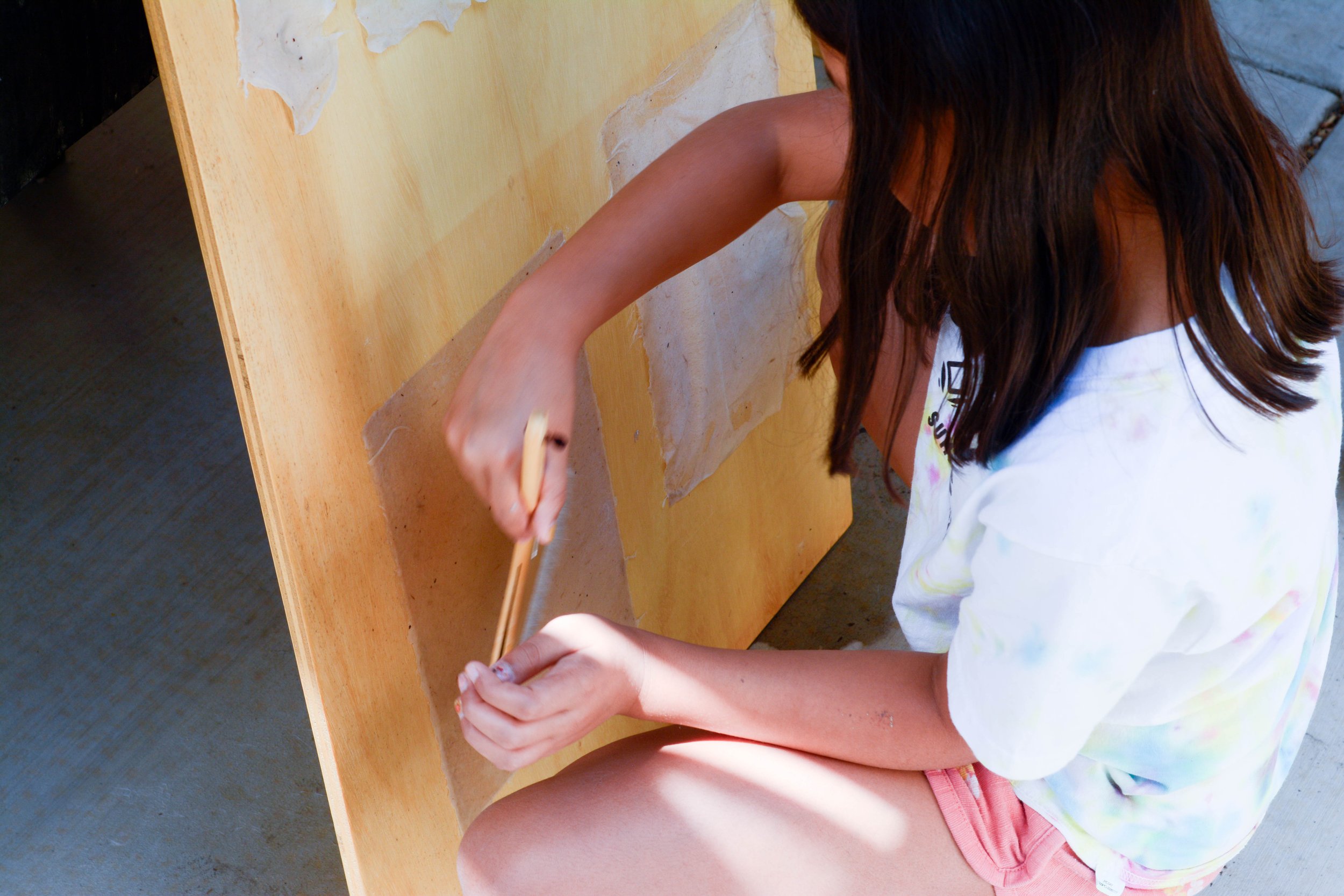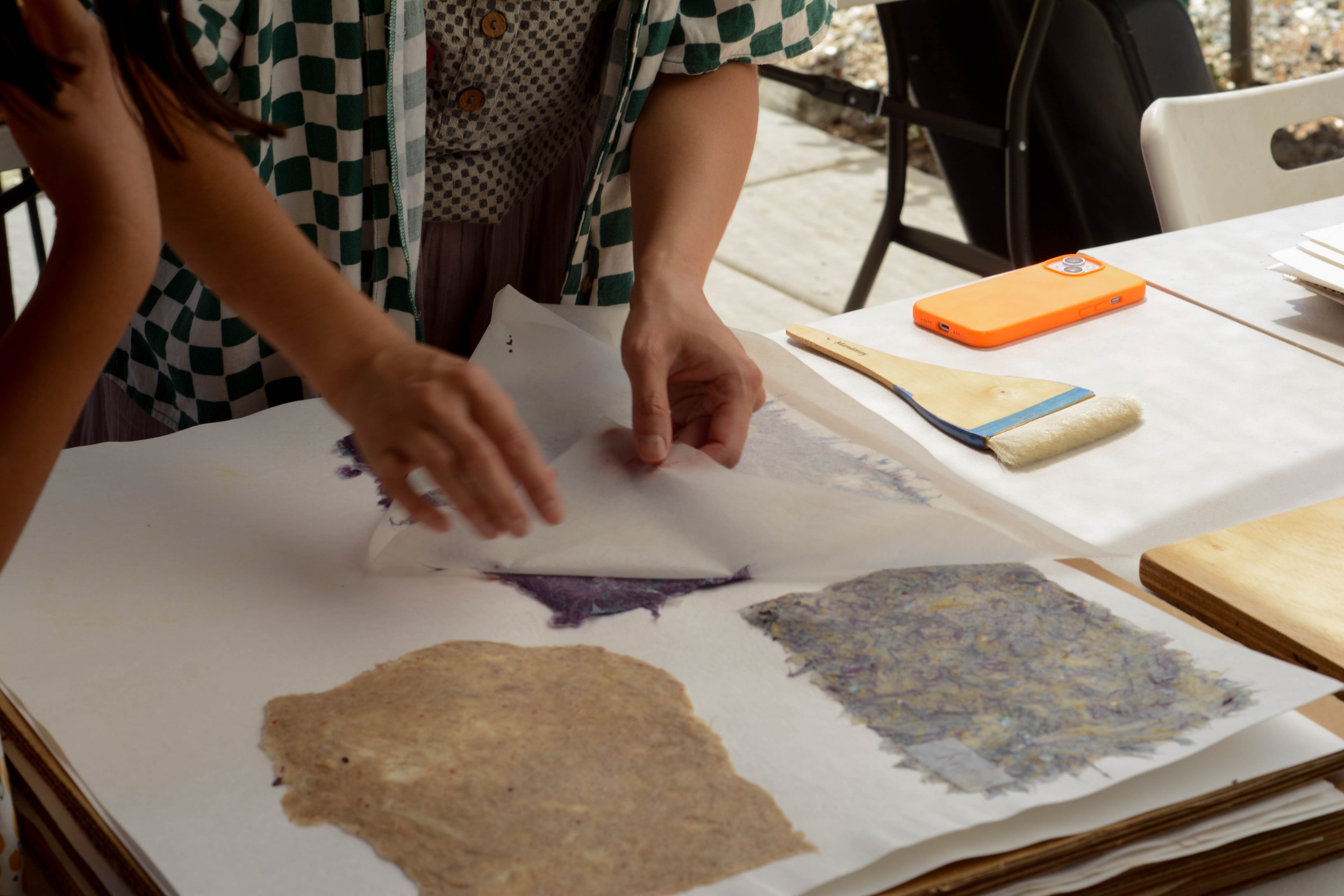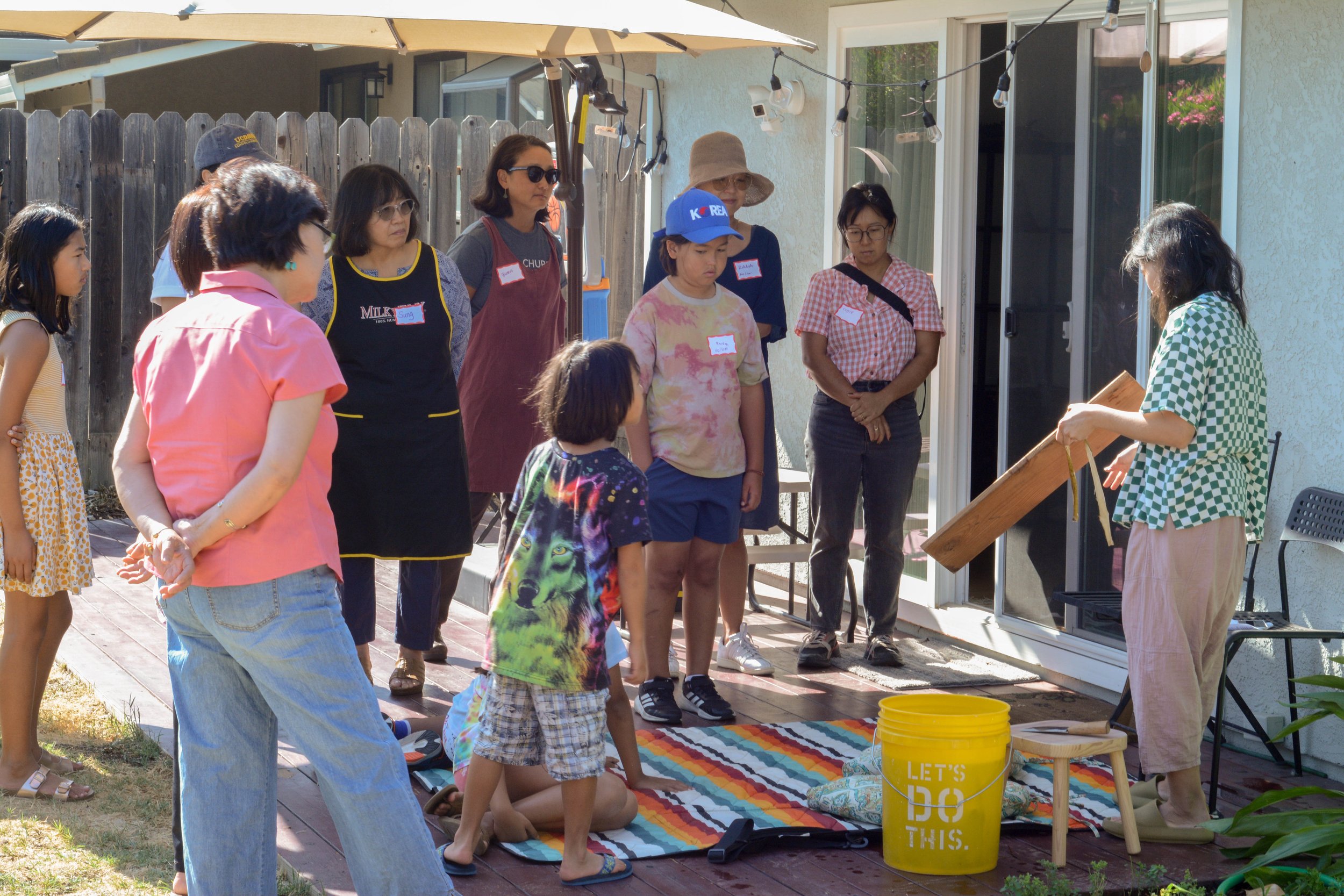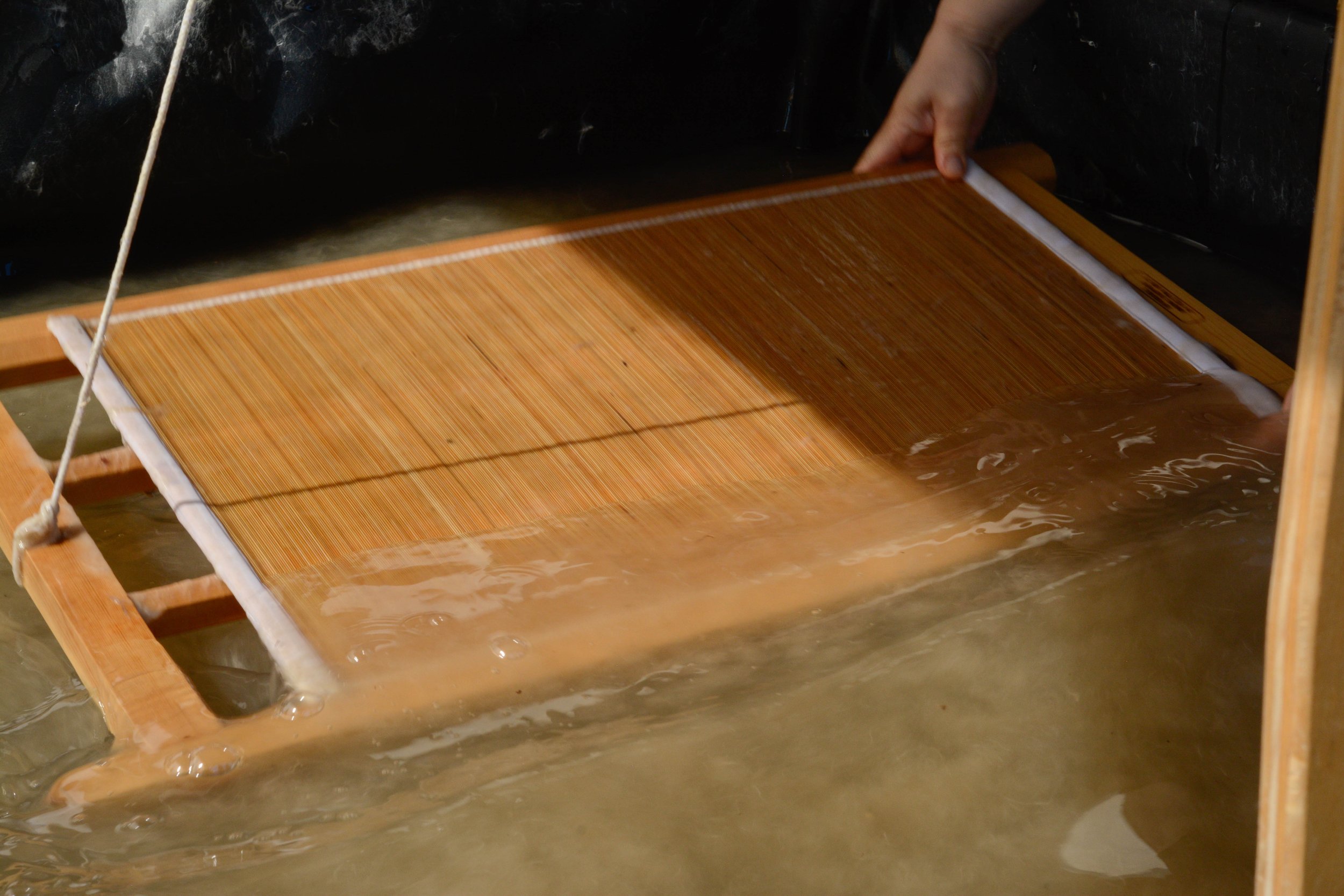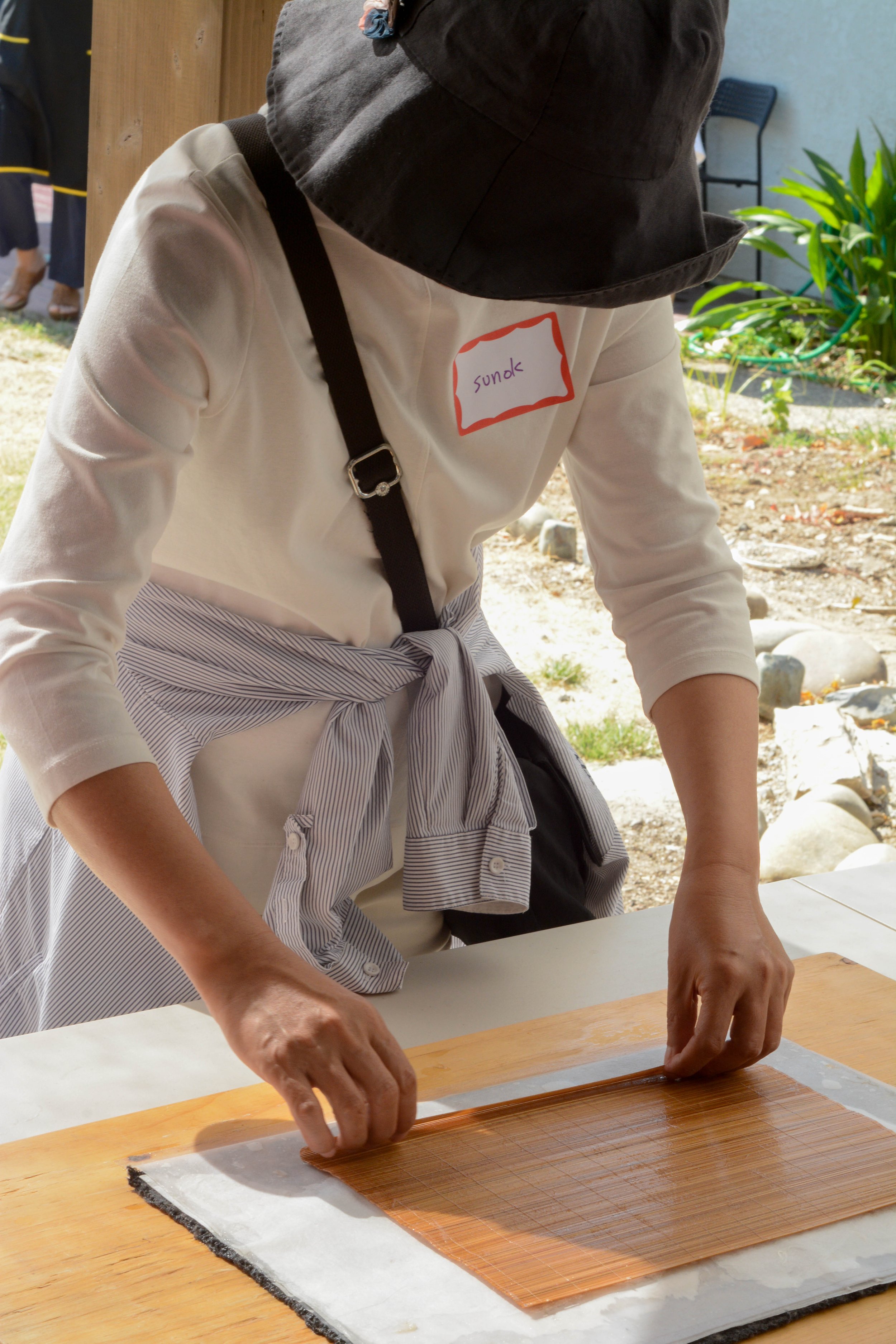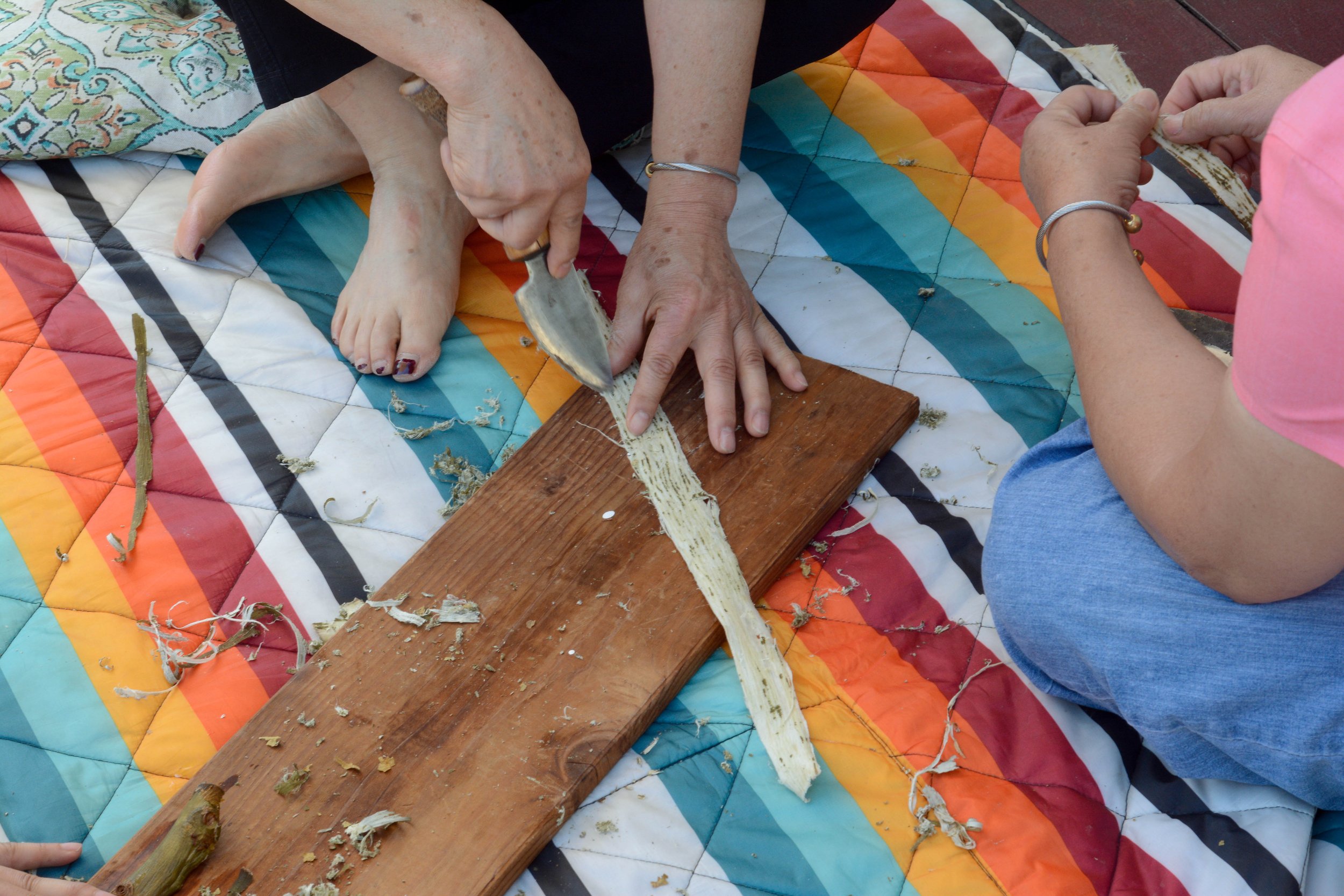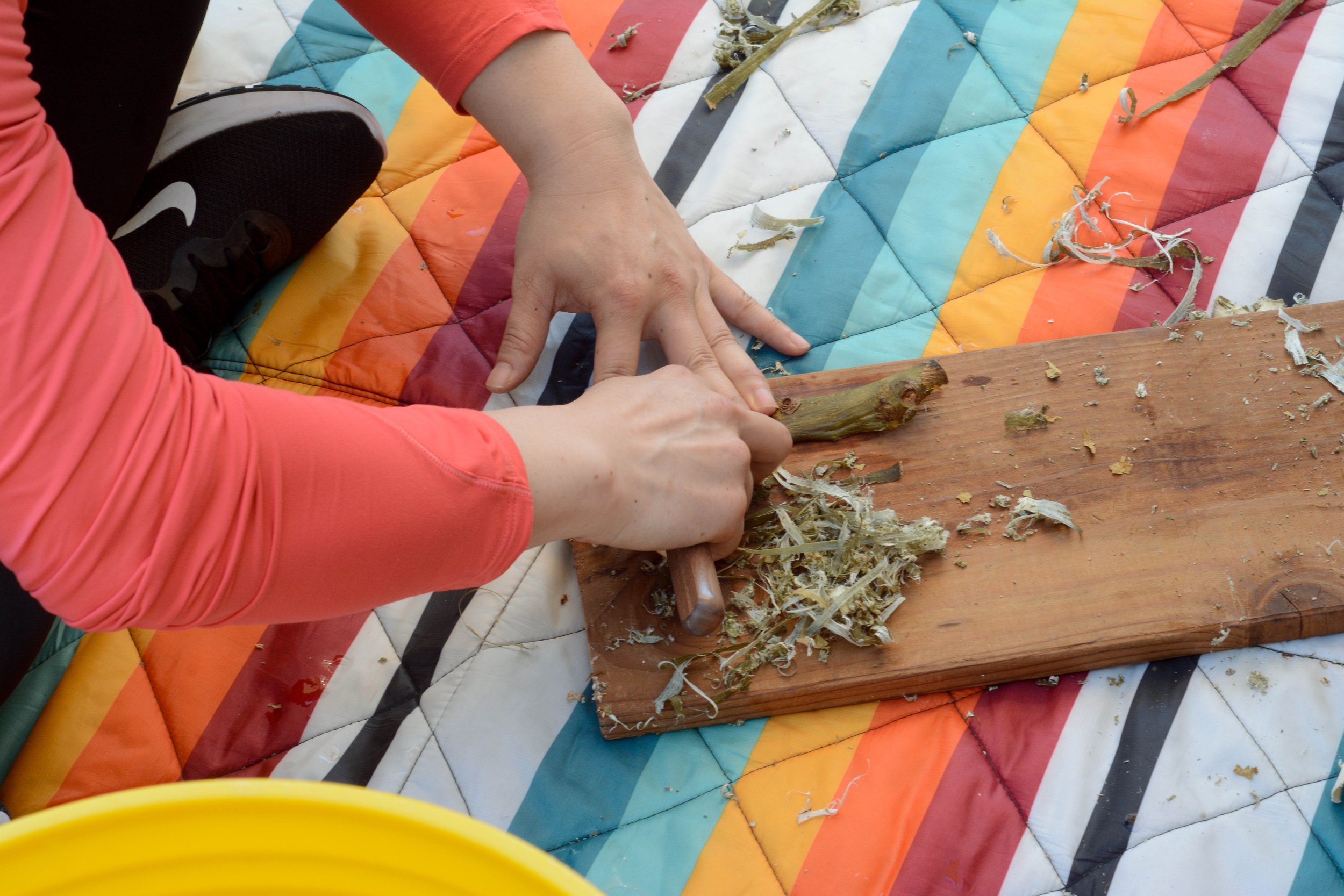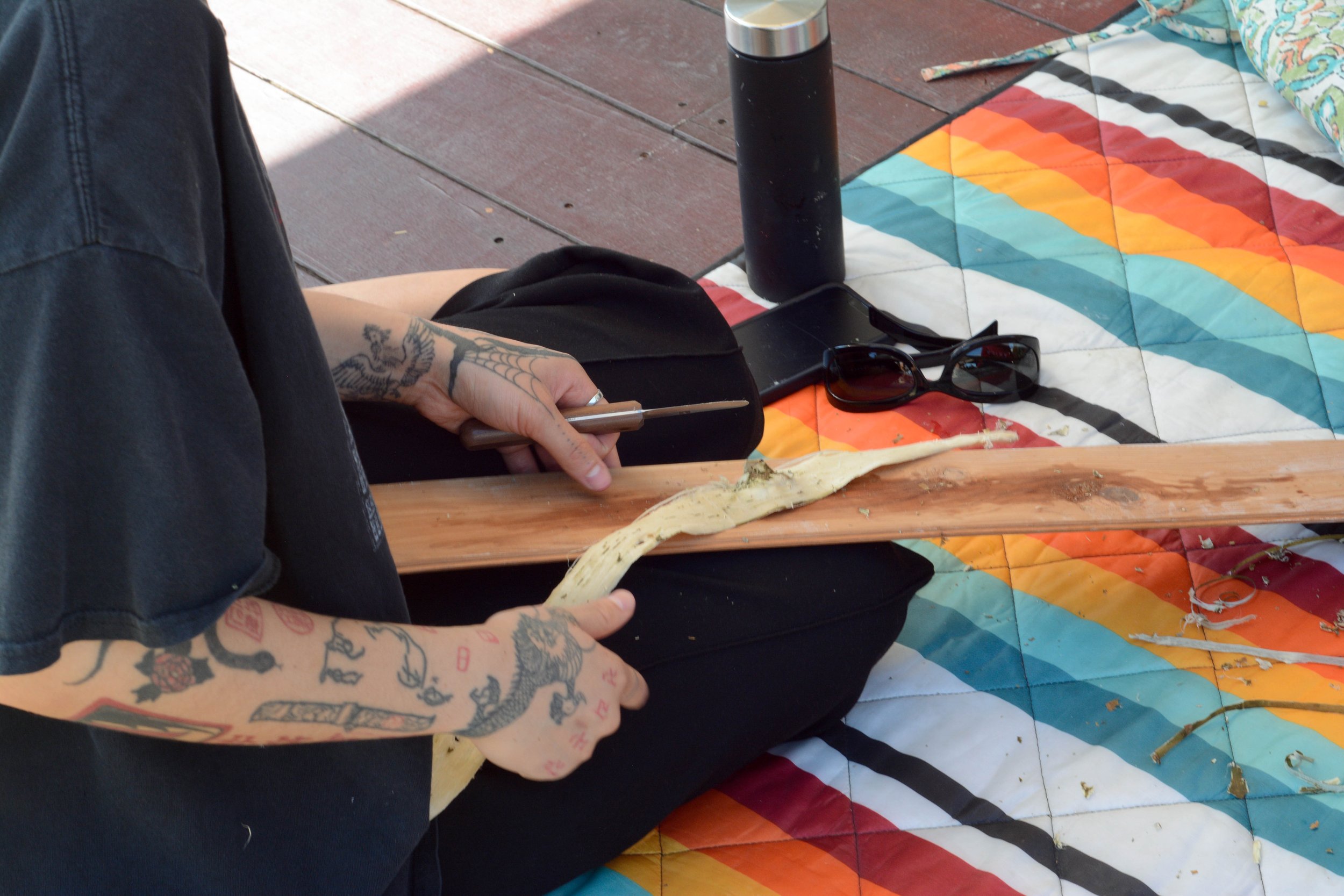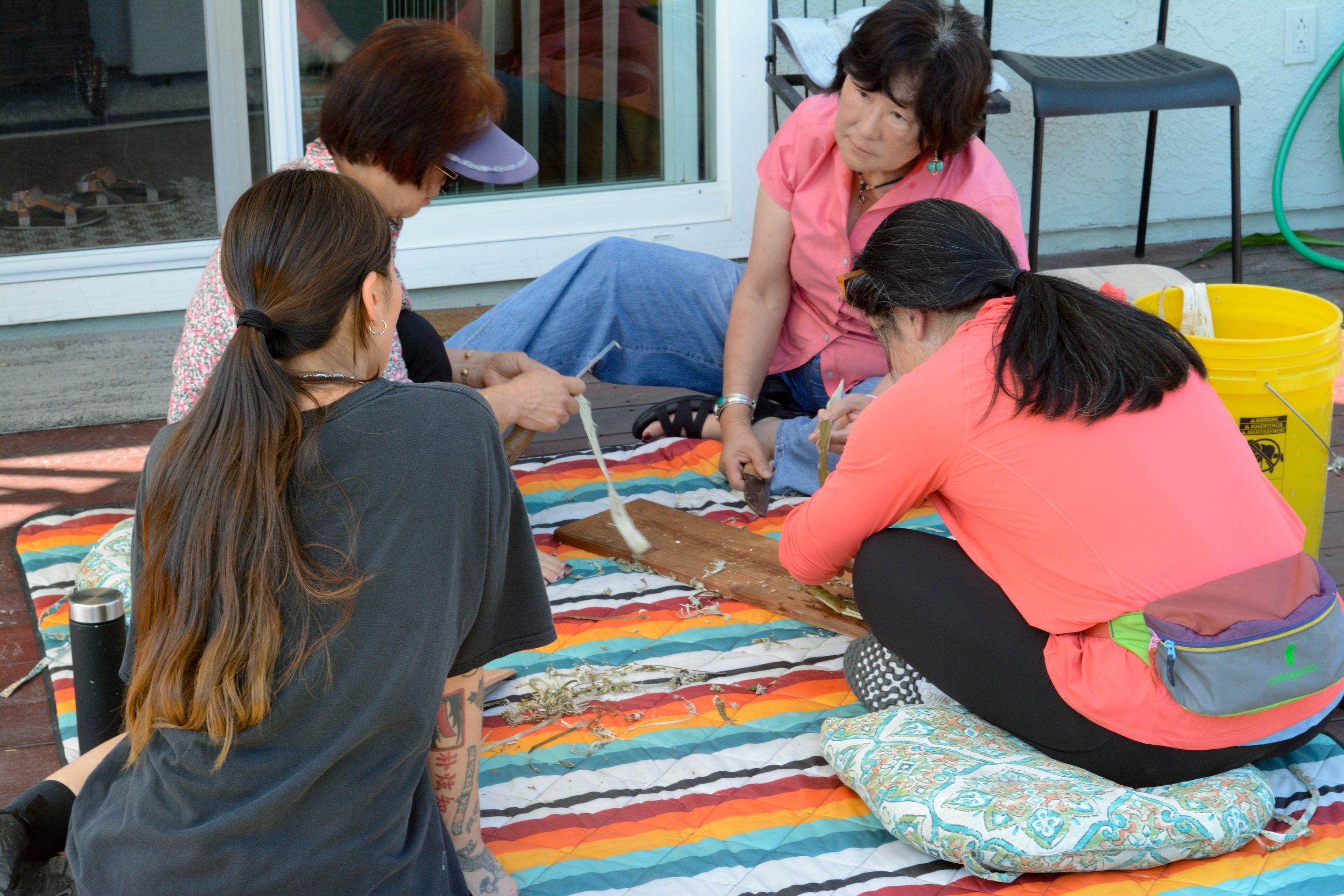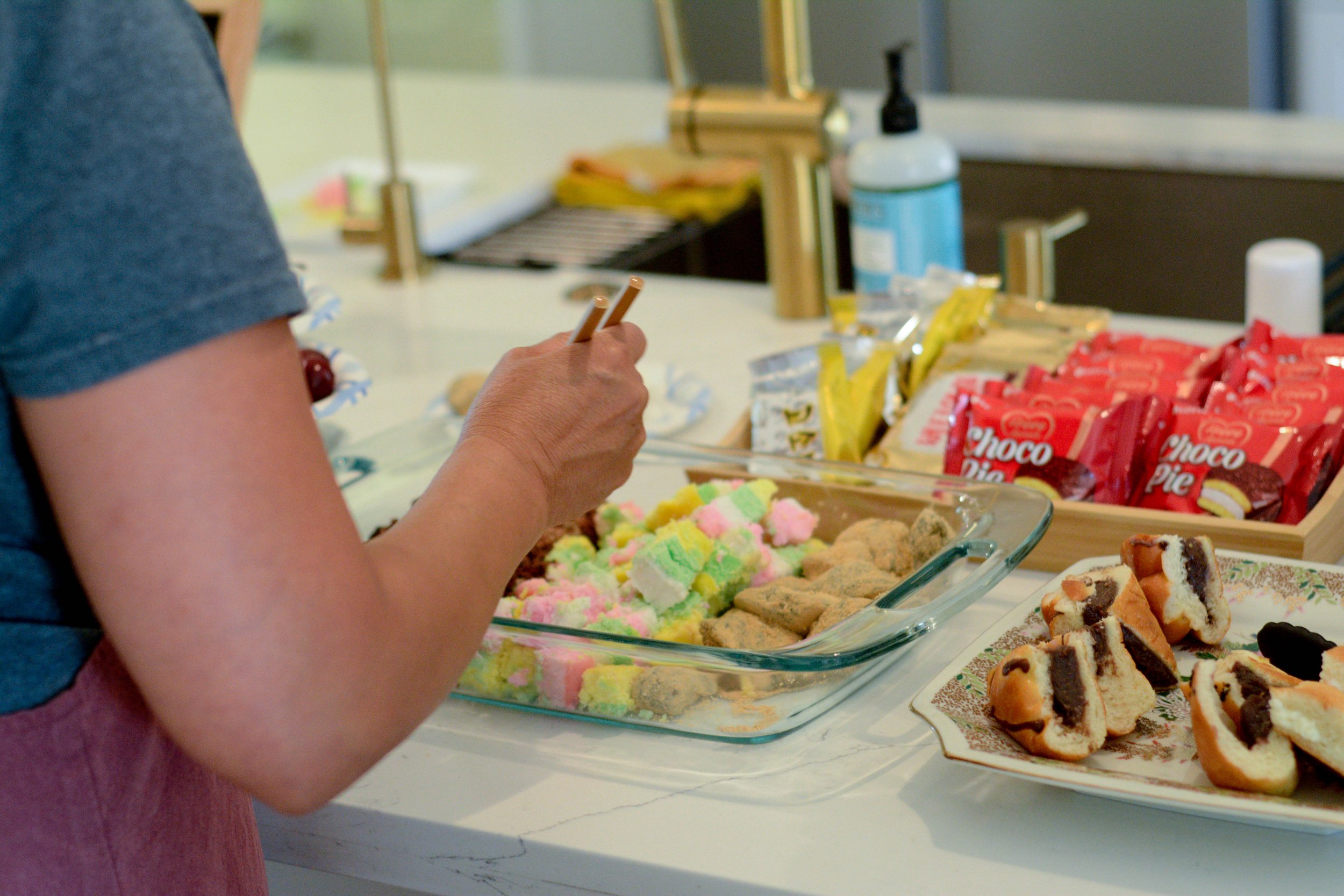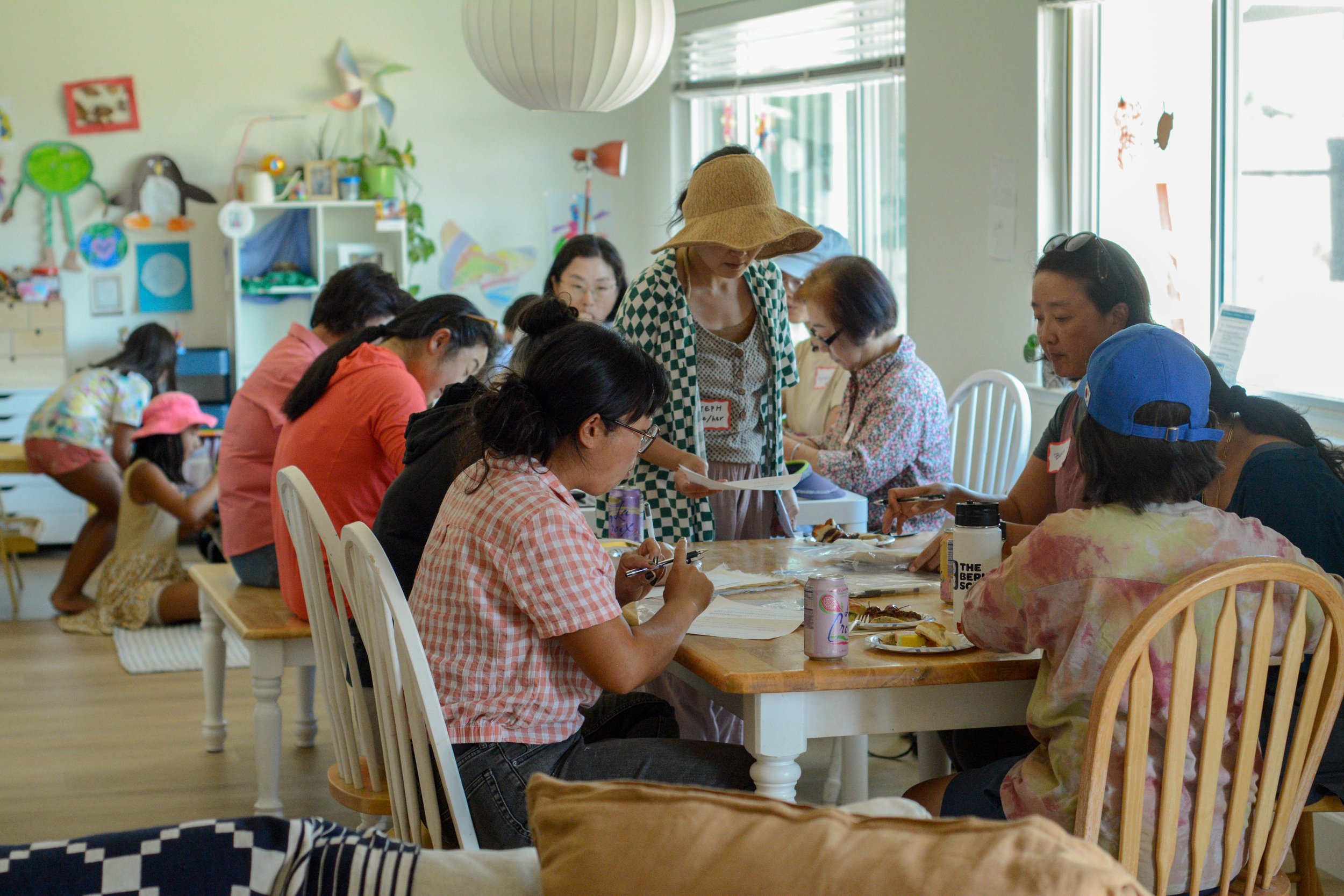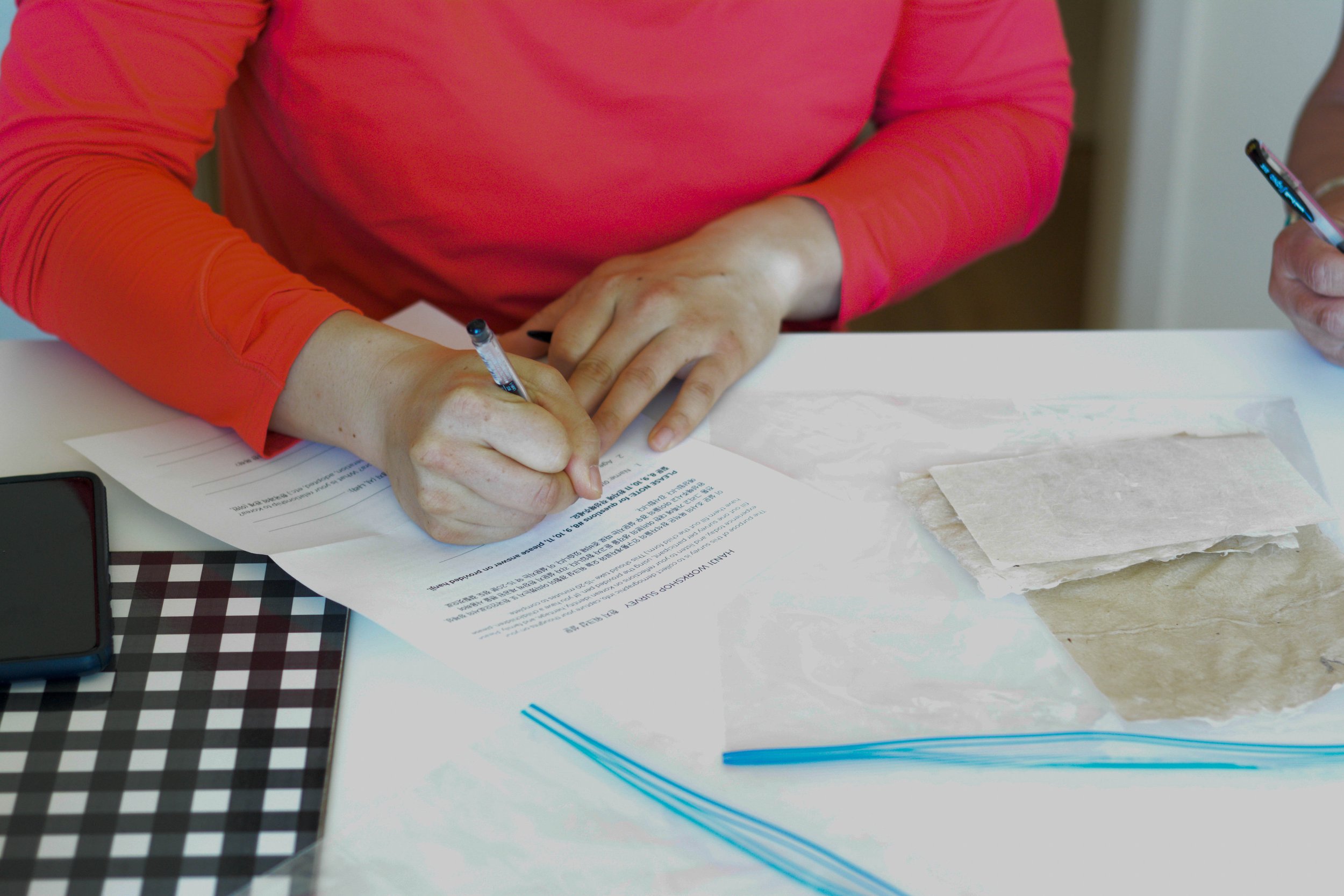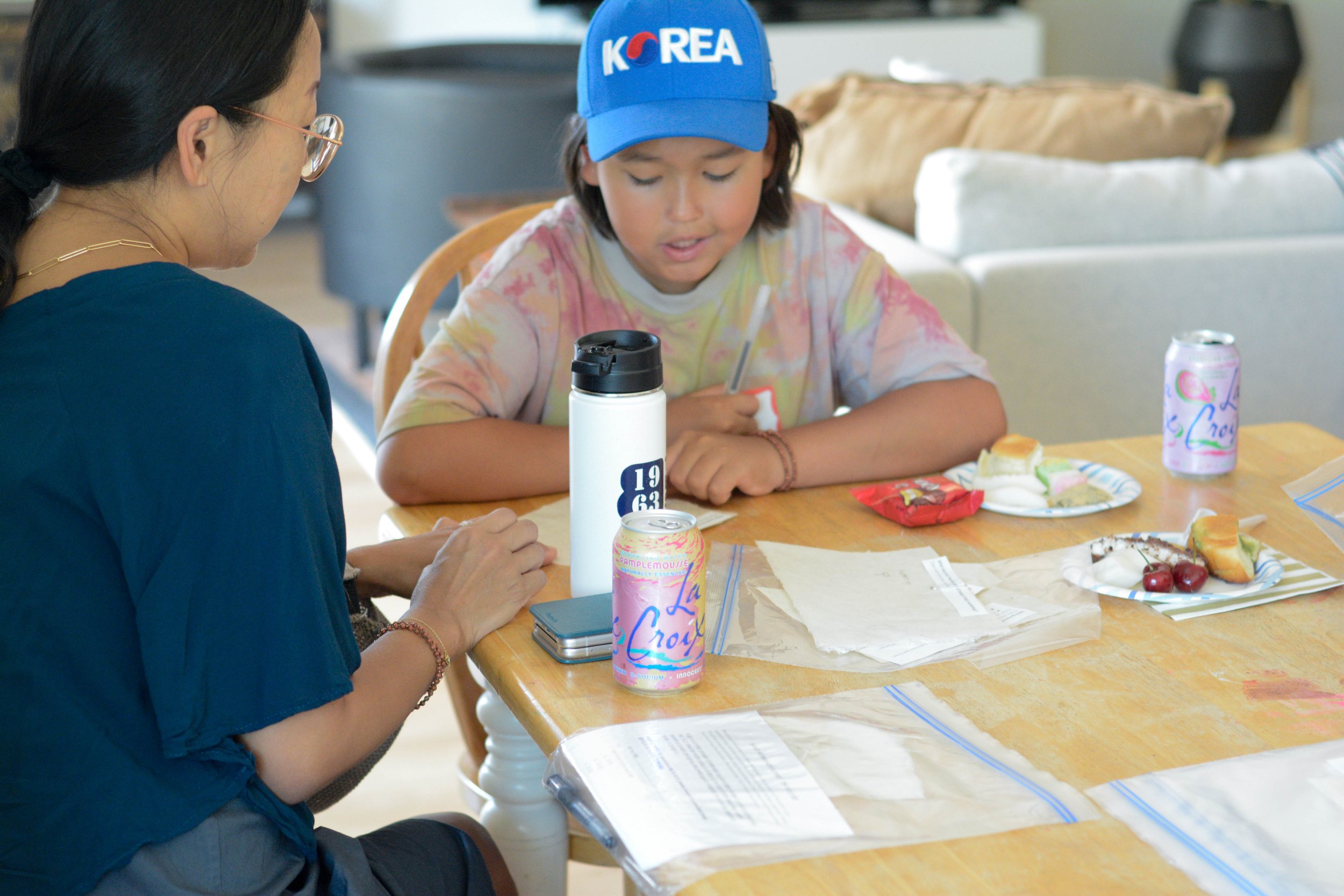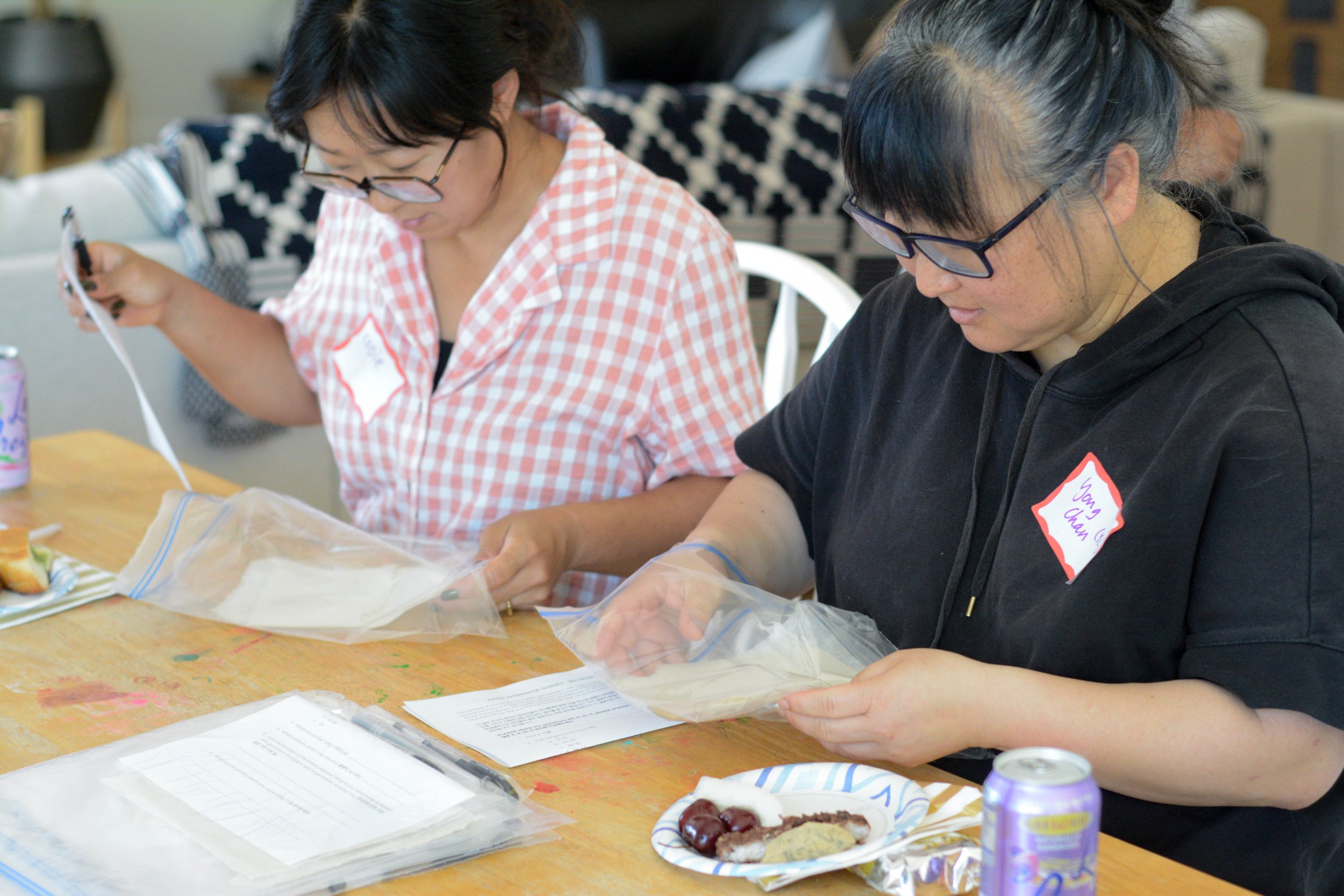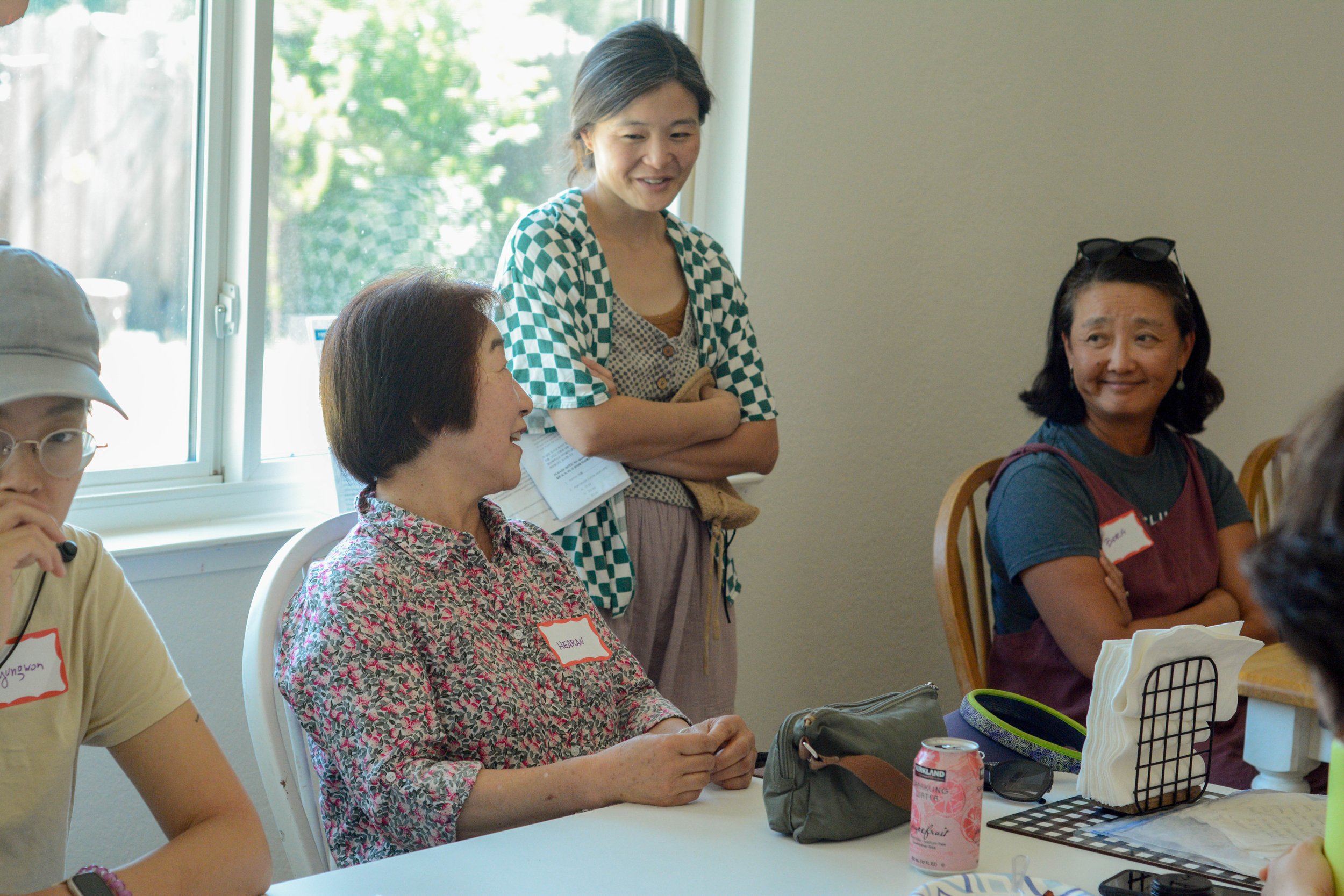The final hanji workshop was a wonderful and diverse gathering of energetic, inquisitive individuals who were eager to share, learn, and experience hanji.
Me in my studio during the orientation. Photo courtesy of Roger Kim.
For this workshop, I added dak scraping to the list of stations (in addition to beating and sheetforming). Participants seemed to really enjoy using the dak knife to scrape the layers of bark. This is one of the most laborious and tedious and time-consuming steps of preparing dak for hanji-making. For some reason this workshop had an inordinate number of older Korean women participants, and somehow it seemed fitting to see many of them sitting on the floor, chatting and laughing while scraping dak.
One of my favorite moments was when I talked about how natural formation aid comes from smashing the roots of a plant called hibiscus manihot, which releases a slimy, viscous mucilage that gets added to the vat. Afterwards, a participant asked if you could add marshmallows to the vat as a formation aid. I imagined opening a bag of marshmallows and emptying it into the vat and mixing it around. At some point while attempting to answer her question, I realized she was talking about the marsh mallow plant, not marshmallows the food.
After the hands-on portion of the workshop, participants went inside, had snacks, and filled out surveys. Then we went around the room and participants could choose to share an answer to one of the survey questions with the group. One participant shared her answer to the question, "Do you have an object, food, song, memory, word, something that is meaningful to you that connects you to your Korean heritage? What is it and why is it meaningful to you?" The memory she shared was a song, which she sang for us: "우리의 소원은 통일" which translates to "Our hope is in reunification." She shared how she grew up in Korea in the 70s and remembers singing this song every day at school, how this longing for reunification was very much present and alive as she had family in North Korea. I had recently watched the documentary Crossings which a member of my art collective, Coleen, had recommended (she was a member of the delegation organized by Women Cross DMZ). Hearing this song and reflecting on the efforts for peace that activists, especially women, have been advocating for a long time, stirred something in me despite I myself not having any family in North Korea. The stark reality of an ongoing war and militarization of the peninsula, and US complicity in this reality, is an undeniable component of our identity as members of the Korean diaspora.
Pile of dak + hanji leftovers generated during workshops
As this was the final hanji workshop of the series, I am now sitting (metaphorically and literally) with piles of hanji generated during the workshops. My heart, head, and arms are full. I’m grateful to the City of Sacramento Office of Arts + Culture for the opportunity to work on this project, and hopeful for more support to continue this work. So much gratitude for every single participant who came through with their whole hearts and believed in the significance of this experience.
I'll continue to post on this blog with reflections and updates on this project; for now, I am turning my attention to other projects, namely an upcoming show with aforementioned KAAC. I am working hard to finish my piece for the exhibit. As I work on this piece, which involves long periods of hand-stitching, I carry all of these experiences in my heart and infuse them in my work, in all that I do, in my very being. This is at least my intention and hope.
